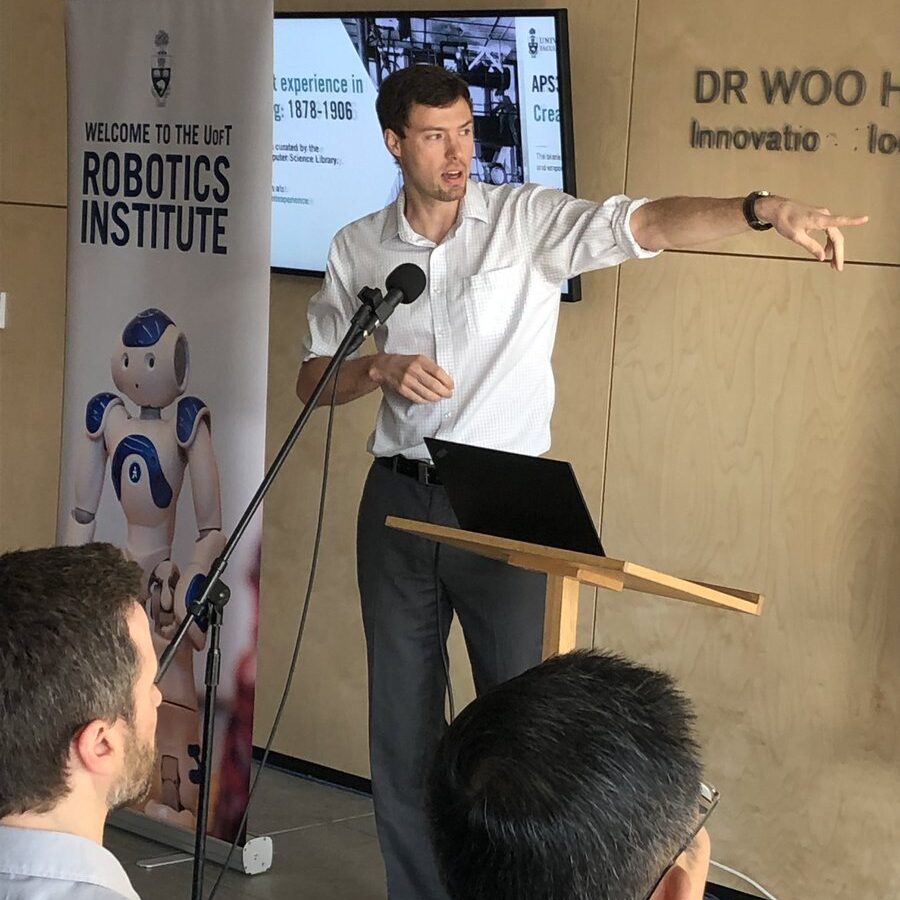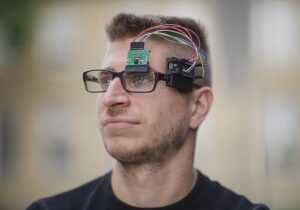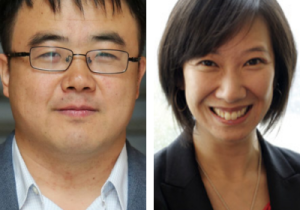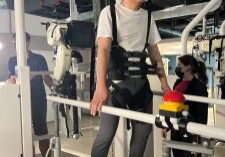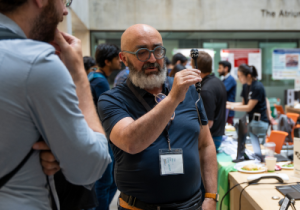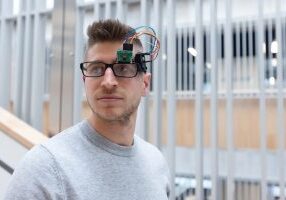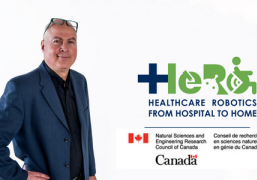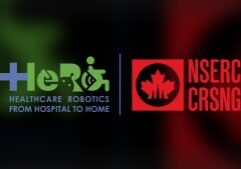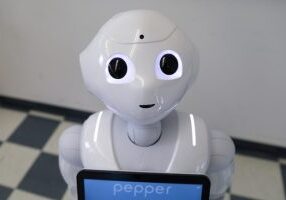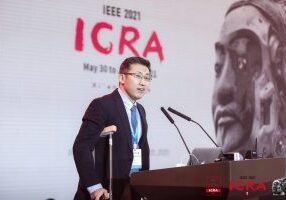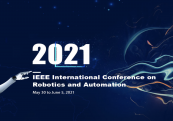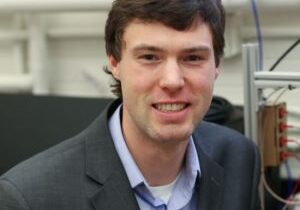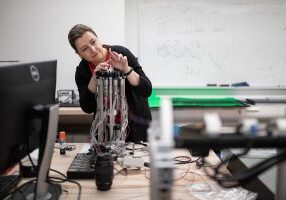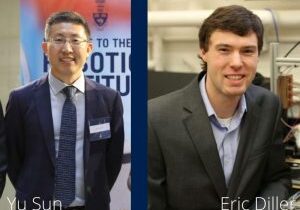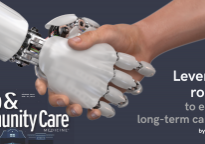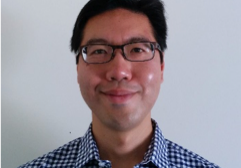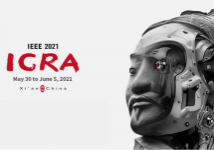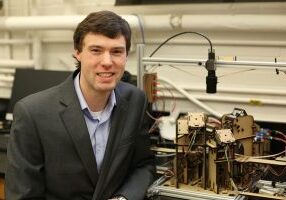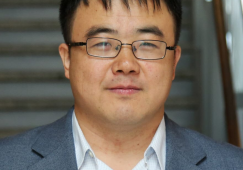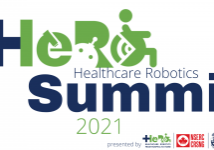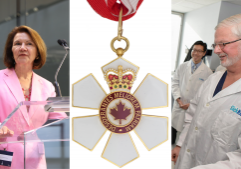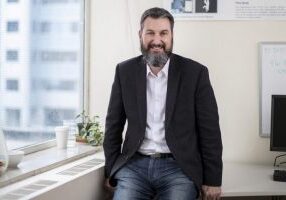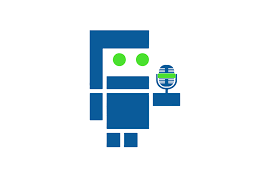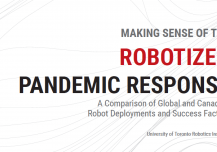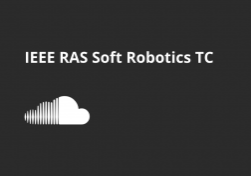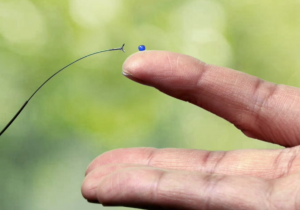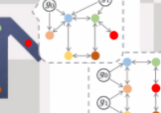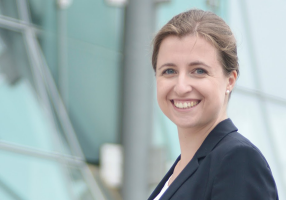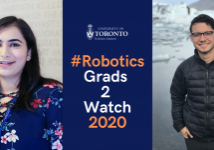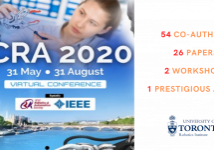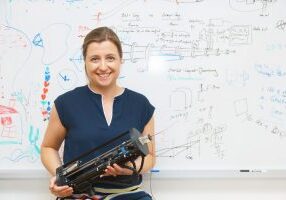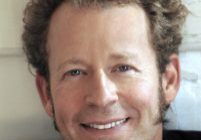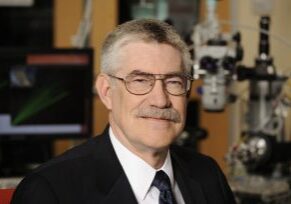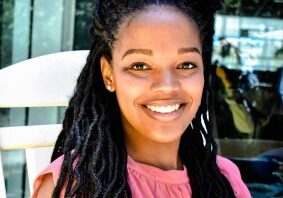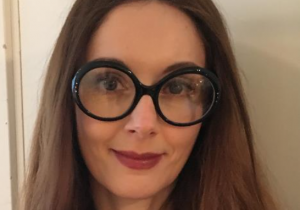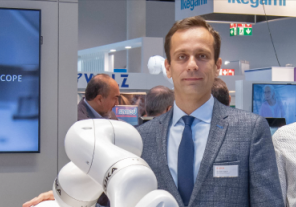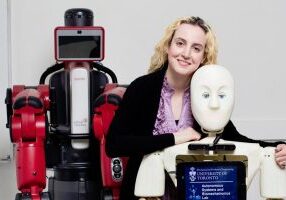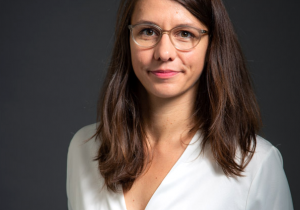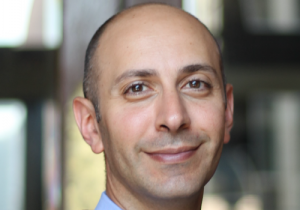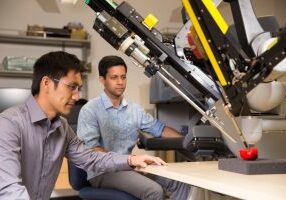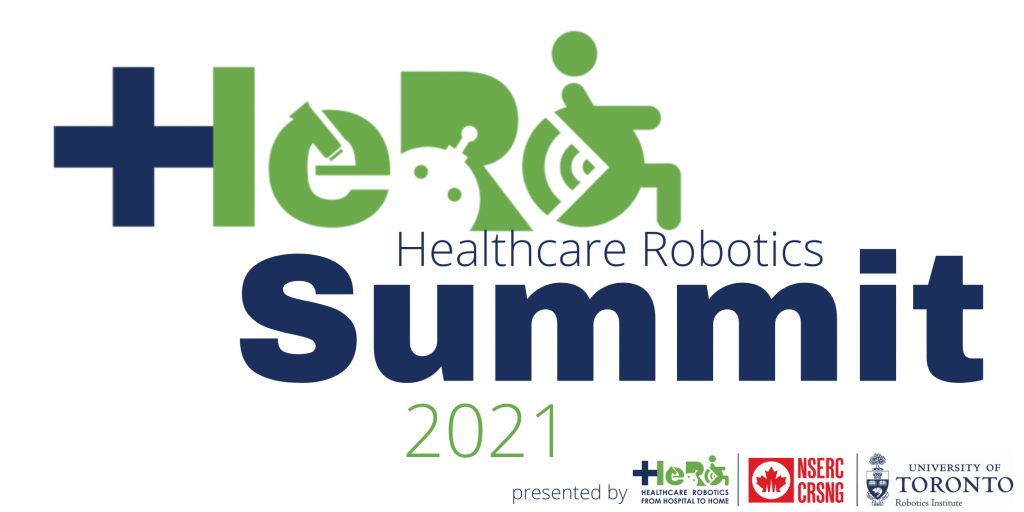
The NSERC CREATE in Healthcare Robotics (HeRo) is the first robotics-focused graduate training program to cover the entire continuum of care from hospital to home. HeRo advances the frontiers of research by tackling robotic challenges in surgery, assistance and rehabilitation -- three domains where robots are having the biggest impact.
Trainees will master an interdisciplinary skill set that intersects robotics, medicine, and artificial intelligence (AI), while building the soft skills needed to contribute effectively to industry.
They will also benefit from the extensive research facilities at the University of Toronto and its partners, as well as from access to clinical populations and the expertise of one of the world's top AI research clusters.
We acknowledge the support of the Natural Sciences and Engineering Research Council of Canada (NSERC).
Program Overview
Trainees will be registered in a program at one of the participating universities (University of Toronto or University of British Columbia) under the supervision of one of our investigators. The HeRo program is meant as a complement to your regular training. Trainees will complete the following components as part of the HeRo program:
- Coursework: Introduction to Healthcare Robotics (MIE1080)
- Summer training, including a design and build competition
- Attend annual HeRo workshop (2 days)
- Attend HeRo seminar series
- Development of Professional Skills
- Opportunity to participate in internships & exchanges
HeRo News
HeRo Seminars
People
Director
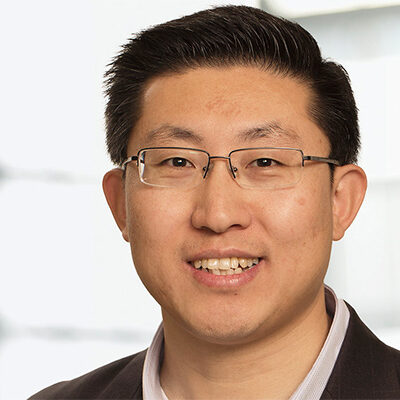
Prof. Yu Sun
Project Director
Advanced Micro and Nanosystems Laboratory (AMNL)
Yu Sun is a Professor in the Department of Mechanical and Industrial Engineering and the founding Director of the UofT Robotics Institute. He specializes in developing innovative technologies and instruments for manipulating and characterizing cells, molecules, and nanomaterials.
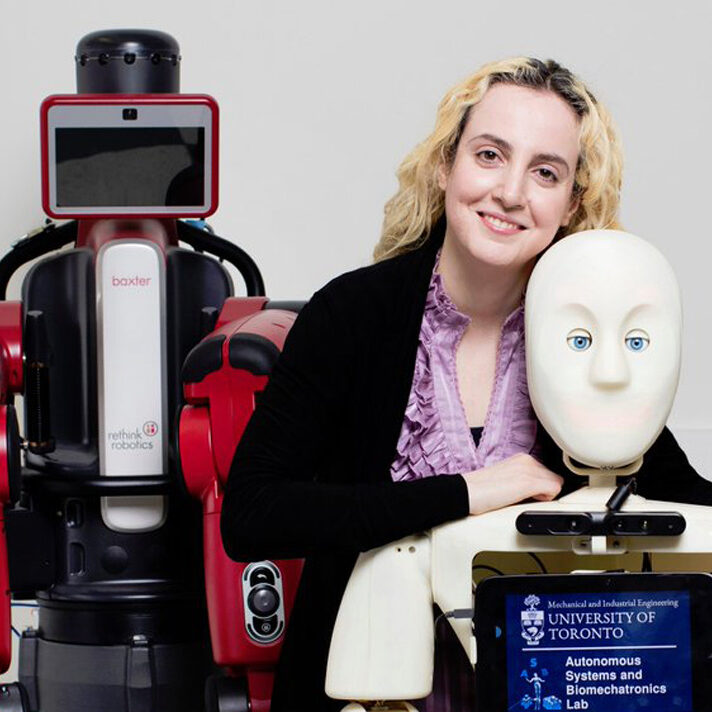
Prof. Goldie Nejat
Project Associate Director
Autonomous Systems and Biomechatronics (ASBLab)
Goldie Nejat PhD, P.Eng. is the Canada Research Chair in Robots for Society and a Professor in the Department of Mechanical & Industrial Engineering. She is also the Founder and Director of the Autonomous Systems and Biomechatronics Laboratory (asblab.mie.utoronto.ca). Professor Nejat is an Adjunct Scientist at both the Toronto Rehabilitation Institute and the Rotman Research Institute at Baycrest. She is a Fellow of the Canadian Institute for Advanced Research (CIFAR). She is a world renowned expert in the development of intelligent socially assistive robots for applications in health and elderly care, for use in healthcare facilities and private homes.
Co-Investigators
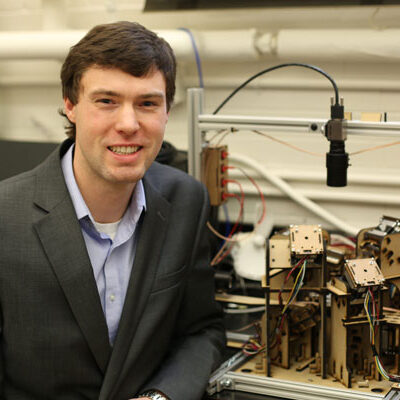
Prof. Eric Diller
Eric Diller is Associate Professor at the Department of Mechanical and Industrial Engineering. His work is on micro-scale robotics and bio-inspired novel locomotion systems, and features fabrication and control of micro-scale devices using magnetic fields, micro-scale robotic manipulation, and smart materials.
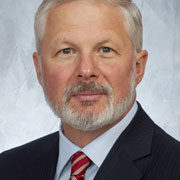
Prof. James Drake
Dr. James Drake is a Professor of Surgery, Division Chief of Pediatric Neurosurgery at the Hospital for Sick Children and holds the Harold Hoffman Shoppers Drug Mart Chair. He is a Senior Associate Scientist in the Sickkids Research Institute, leads the Centre of Image Guided Innovation and Therapeutic Intervention (CIGITI) and is co-lead of the Centre of Excellence in Image Guided Care.
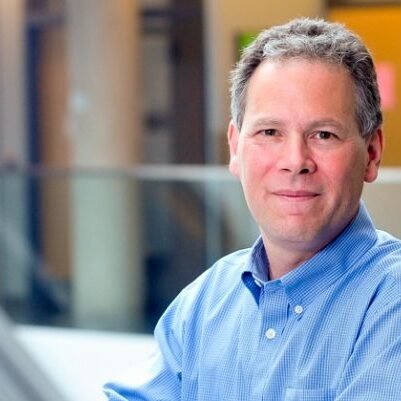
Prof. David Fleet
David Fleet is a Professor of Computer Science in the Department of Computer and Mathematical Sciences at the University of Toronto Scarborough. He is also Senior Research Scientist at Google Brain. His research interests include aspects of computer vision, machine learning, image processing, and visual neuroscience.
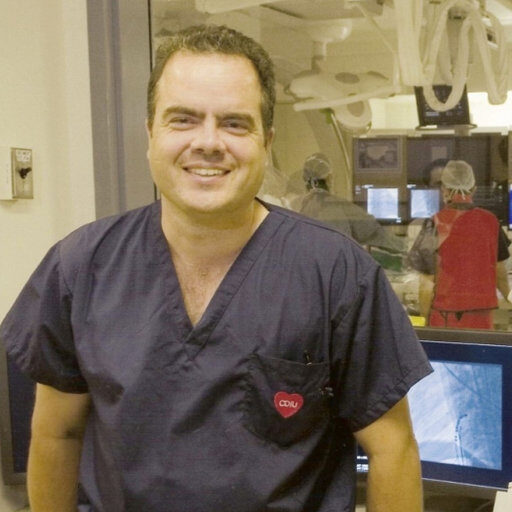
Dr. Robert Hamilton
Dr. Robert Hamilton is a Professor of Paediatric Cardiac Electrophysiology and Senior Associate Scientist in Translational Medicine at SickKids and UofT. His expertise is in cardiac pacing, ablation and electrophysiology, with extensive experience in transcatheter electrical mapping of arrhythmia
substrates and energy delivery for the ablation of discrete electrical pathways as curative therapy for arrhythmias. He has significant experience with robotic systems used in these applications.
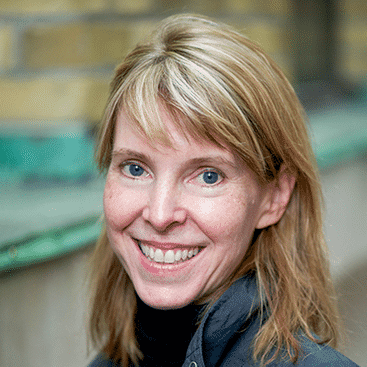
Prof. Sheila McIlraith
Sheila McIlraith is a Professor in Computer Science. She has 10
years of industrial R&D experience developing AI applications. McIlraith is an expert in AI knowledge representation and reasoning with a focus on cognitive robotics and automated planning. Her work focuses on AI sequential decision making broadly construed, through the lens of human-compatible AI.
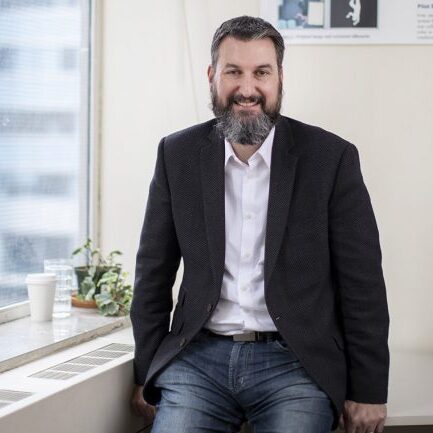
Prof. Alex Mihailidis
Intelligent Assistive Technology and Systems Lab
Alex Mihailidis is a Senior Scientist at TRI-UHN and a Professor at IBBME
and in the Occupational Science & Occupational Therapy Department at UofT, and is the Scientific Director and CEO of the AGE-WELL NCE. He is a recognized expert in pervasive computing and intelligent systems in health. His research focuses on developing intelligent home systems for elder care and wellness and rehabilitation technologies, including robotics in stroke rehabilitation.
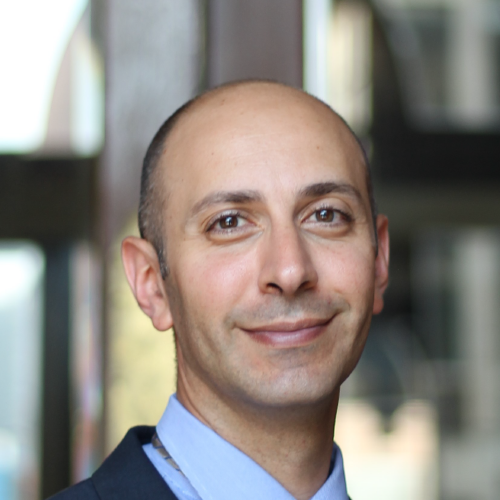
Prof. José Zariffa
Adaptive Neurorehabilitation Systems Lab
José Zariffa is a Senior Scientist at TRI-UHN and an Associate Professor in BME at UofT. His expertise is in rehabilitation robotics, automated assessments of function, computer vision, and neuroprosthetic systems. He conducted the first clinical trial of an upper limb rehabilitation robot in
the spinal cord injury population.
Collaborators
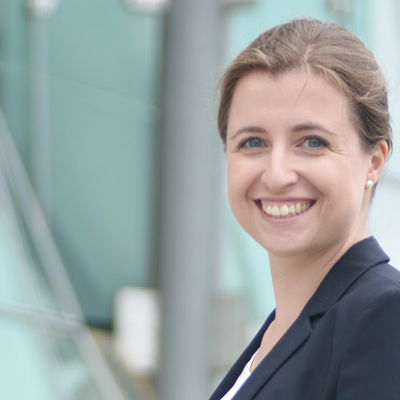
Prof. Jessica Burgner-Kahrs
Jessica Burgner-Kahrs is Associate Professor with the Depts. of Mathematical & Computational Sciences, Computer Science, and Mechanical & Industrial Engineering, and Assoc. Director of the Robotics Institute. Her work on continuum robotics addresses applications in minimally-invasive surgery, maintenance and repair.
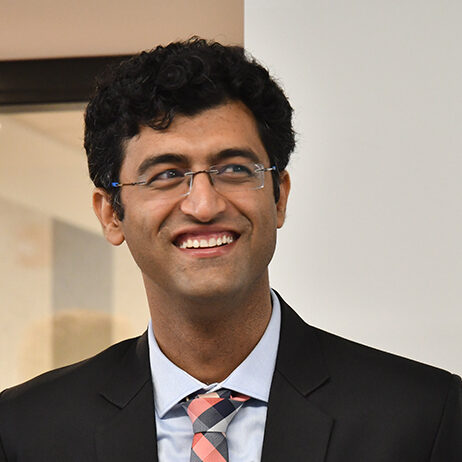
Prof. Animesh Garg
People, AI and Robotics (PAIR)
Animesh Garg is an Assistant Professor of Computer Science at UofT and a Faculty Member at the Vector Institute and director the People, AI and Robotics (PAIR) group. His research focuses on machine learning algorithms for perception and control in robotics, and is currently working on mobile-manipulation in surgical robotics.
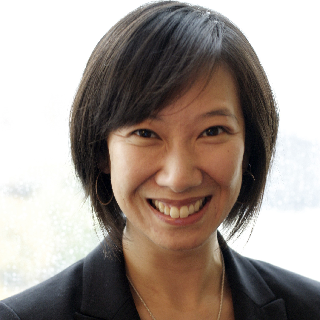
Prof. Rosalie Wang
Intelligent Assistive Technology and Systems Lab (IATSL)
Rosalie Wang is Assistant Professor of the Department of Occupational Science and Occupational Therapy at UofT. She is an Affiliate Scientist at Toronto Rehabilitation Institute and a member of their AI and Robotics in Rehabilitation team. She focuses on developing and implementing technology to enable daily activity of seniors and post-stroke rehabilitation.
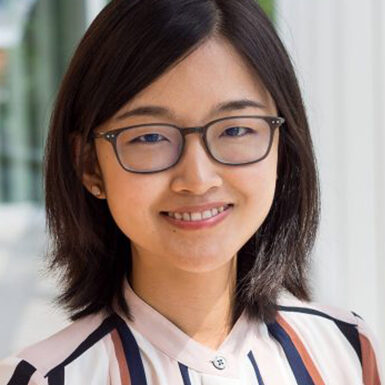
Prof. Lyndia Wu
Sensing in Biomechanical Processes Lab
Lyndia Wu is Assistant Professor of Mechanical Engineering at UBC. She directs the SimPL Lab to develop novel sensing and data analytics to study the biomechanics of the human body in health and disease states.
Dr. Seven Hopyan
Orthopedic Surgeon, The Hospital for Sick Children
Dr. Vitor Mendes Pereira
Neurosurgeon, The Hospital for Sick Children
Alexander Luganov
IVF Lab Director, Hannam Fertility Centre
Clifford Librach
Founder and Director, CReATE Fertility Centre
Sam Sandassie
Senior Education and Training Manager, AGEWELL
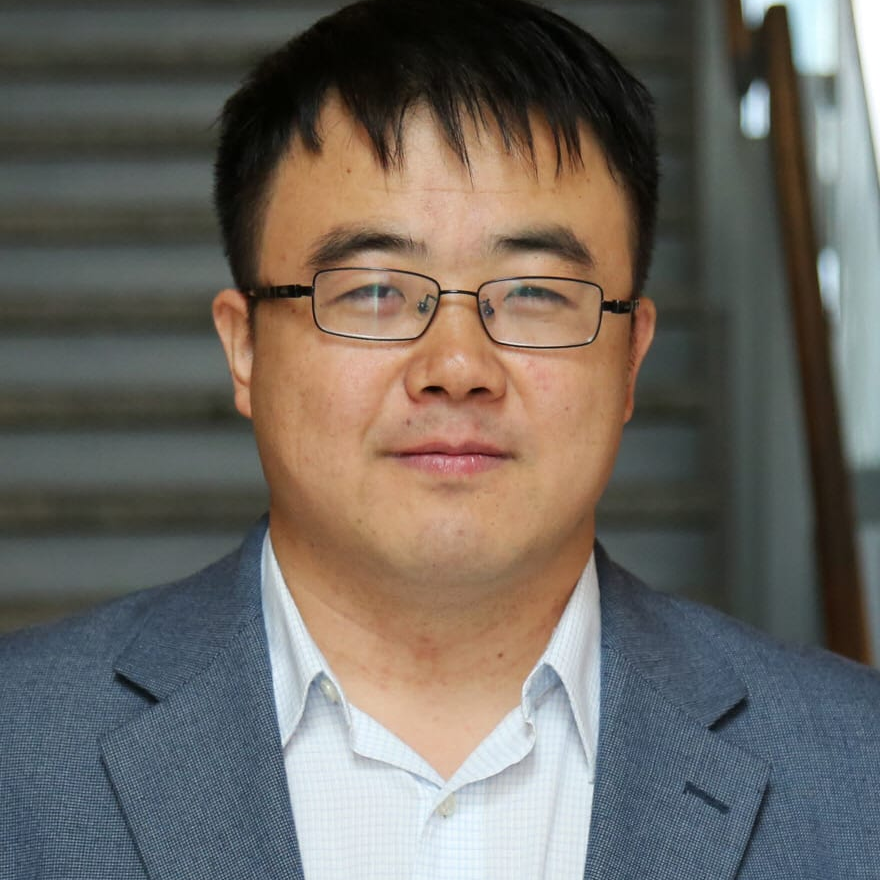
Prof. Xinyu Liu
Xinyu Liu is an Associate Professor in the Department of Mechanical and Industrial Engineering. He is developing integrated micro/nanodevices and systems to target a variety of exciting applications in biology, medicine, and environment. Applications of their recent technologies include point-of-care diagnostics, large-scale gene screening, neural basis of behaviour, high-throughput drug screening, and environmental pollution monitoring.
Dr. Patrick Nicholson
Interventional and Diagnostic Neuroradiologist, University Health Network
Miles Macklin
Principle Engineer, NVIDIA
Prof. Helen Tran
Department of Chemistry, University of Toronto
Prof. Lueder Kahrs
Department of Mathematical and Computational Sciences, University of Toronto
Gabriella Chan
Course Director for Modules in Translational Research, University of Toronto
Program Committee
- Rosalie Wang (HeRo faculty)
- Yu Sun (program director)
- David Rivest-Hénault (NRC Researcher)
- Guanqiao Shan (Trainee, Student Advisor)
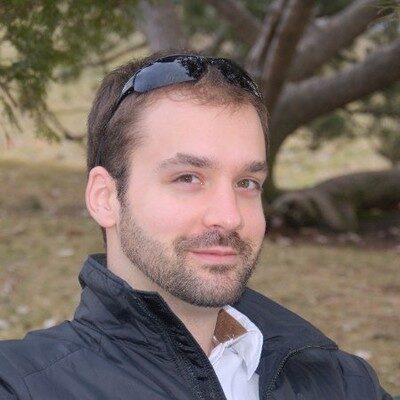
David Rivest-Hénault
David Rivest-Hénault is an associate researcher at the NRC and a postdoc alumni of CSIRO (Australia).
Student Fellows
Year 4 (2023-24) Cohort
Alizadeh Alamdari, Parand
Benjamin, Stephanie
Dou, Wenkun
Eby, Jonathon
Gao, Yuan
Getson, Cristina
Haigh, Cameron
Huang, Zongjie
Jafari, Deniz
Kwong, Timothy
Law, Junhui
Lee, Taeyoung
Liang, Nan
Liu, Hang
Pol, Nirmal
Sieben, Daniel
Smegal, Hannah
Sun, Jinjie
Tang, Wentian
Wang, Andrew
Wang, Jintian
Wu, Xia
Zhang, Pengsong
Zhou, Zhanfeng
Year 3 (2022-23) Cohort
Aubeeluck, Anastasia
Dousty, Mehdy
Effati, Meysam
Fatah, Meena
Fredin, Erik
Fung, Angus
He, Changyan
Kang, Paul
Laschowski, Brokoslaw
Parand, Alizadeh Alamdari
Robinson, Fraser
Shan, Guanqiao
Shvo, Maayan
Wang, Jintian
Wang, Tiancong
Tsai, Meng-Fen
Wu, Xia
Zhou, Zhanfeng
Zou, Zhiling
Year 2 (2020-21) Cohort
Alam, Muhammad Raisul
Bao, Zhuo Fan
Dai, Changsheng
Dousty, Mehdy
Fatah,Meena
Fung, Angus
Gauthier, Lyle
Gong, Zheyuan
Khalili, Mahsa
Li, Andrew
Li, Jianfeng
Luu, Cidnee
Mayer, Haley
Pham-Hung, Michael
Rao, Priyanka
Shvo, Maayan
Song, Ze
Tang, Wentian
Tsai, Meng-Fen
Turpin, Dylan
Ulemek, Jelena
Wang, Tiancong
Xu, Pengfei
Xu, Zhaoyi
Yao, Bo Wen
Zhang, Zhuoran
Zou, Zhiling
Year 1 (2019-20)Cohort
Alam, Muhammad Raisul
Dousty, Mehdy
Fung, Angus
Thavaratnam, Kabriya
Khalili, Mahsa
Kim, Jongwoo
Li, Zhaoxin
Mohamed, Sharaf
Rao, Priyanka
Shan, Guanqiao
Shekarforoush, Shayan
Shvo, Maayan
Wang, Xian
Yao, Bo Wen
Zhang, Zhuoran
Zhu, Min
To stay connected to other student fellows, HeRo trainees are encouraged to join the #hero-create channel on the UofT Robotics Institute Student Slack. Please contact Kimberly Colburn if you are a HeRo trainee and want to join.
Training Opportunities
Courses
Hero trainees must participate in MIE1080 (students who have finished their coursework may audit the course).
MIE1080: Introduction to Healthcare Robotics
This course will provide students with practical knowledge on healthcare robotics including surgical, assistive, and rehabilitation robots through a series of guest lectures and trainee presentations. Students will learn both fundamentals and state-of-the-art advances in healthcare robotics while touching on design, co-collaboration, patents and ethical issues.
- Course syllabus
- Some guest lectures available on the Robotics Institute YouTube channel (MIE1080 playlist)
Summer Training
HeRo trainees must participate in summer training, which includes tutorials on core breadth topics and professional skills development. It will culminate in a design and build competition to encourage interdisciplinary collaboration between trainees.
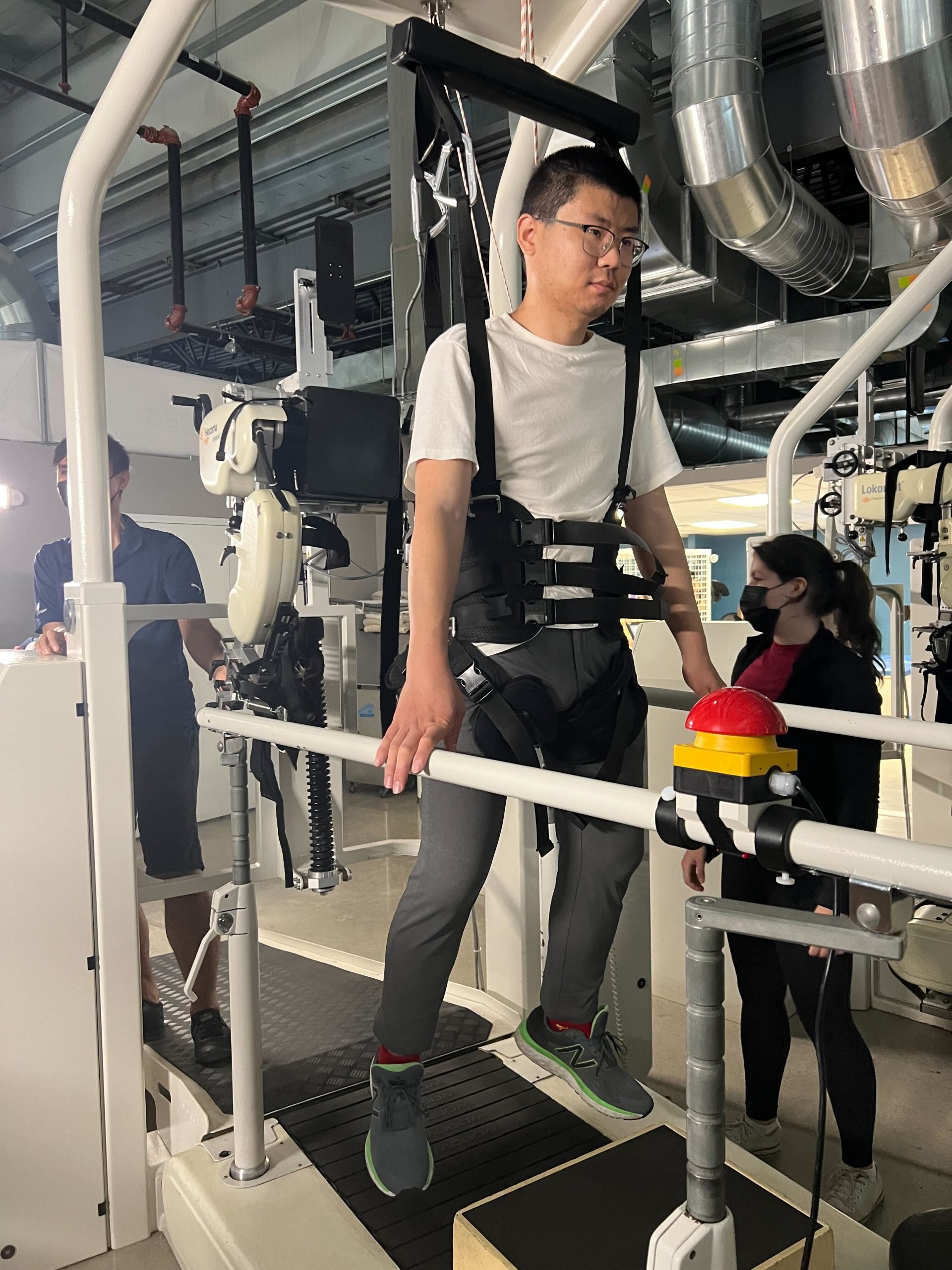
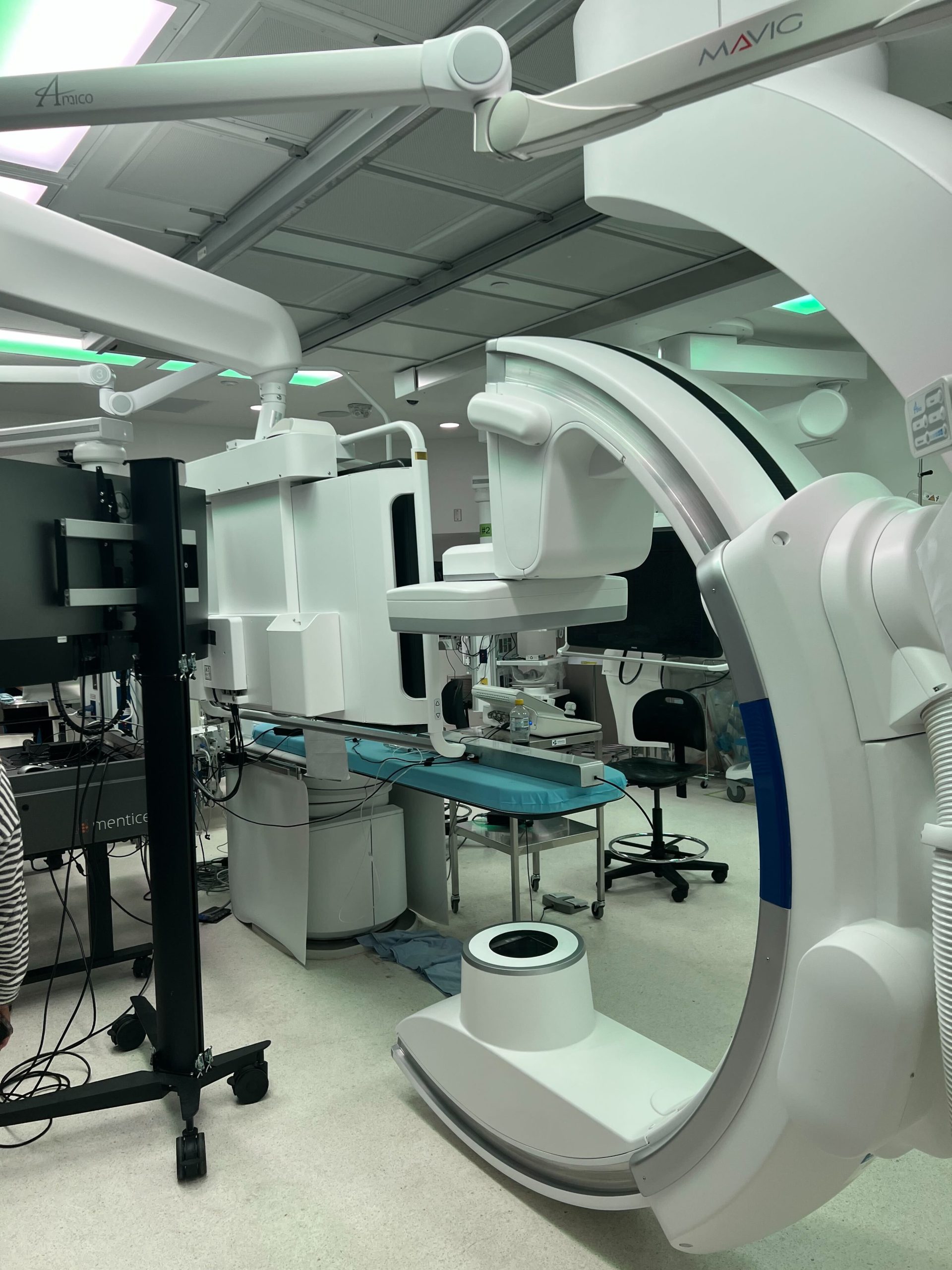
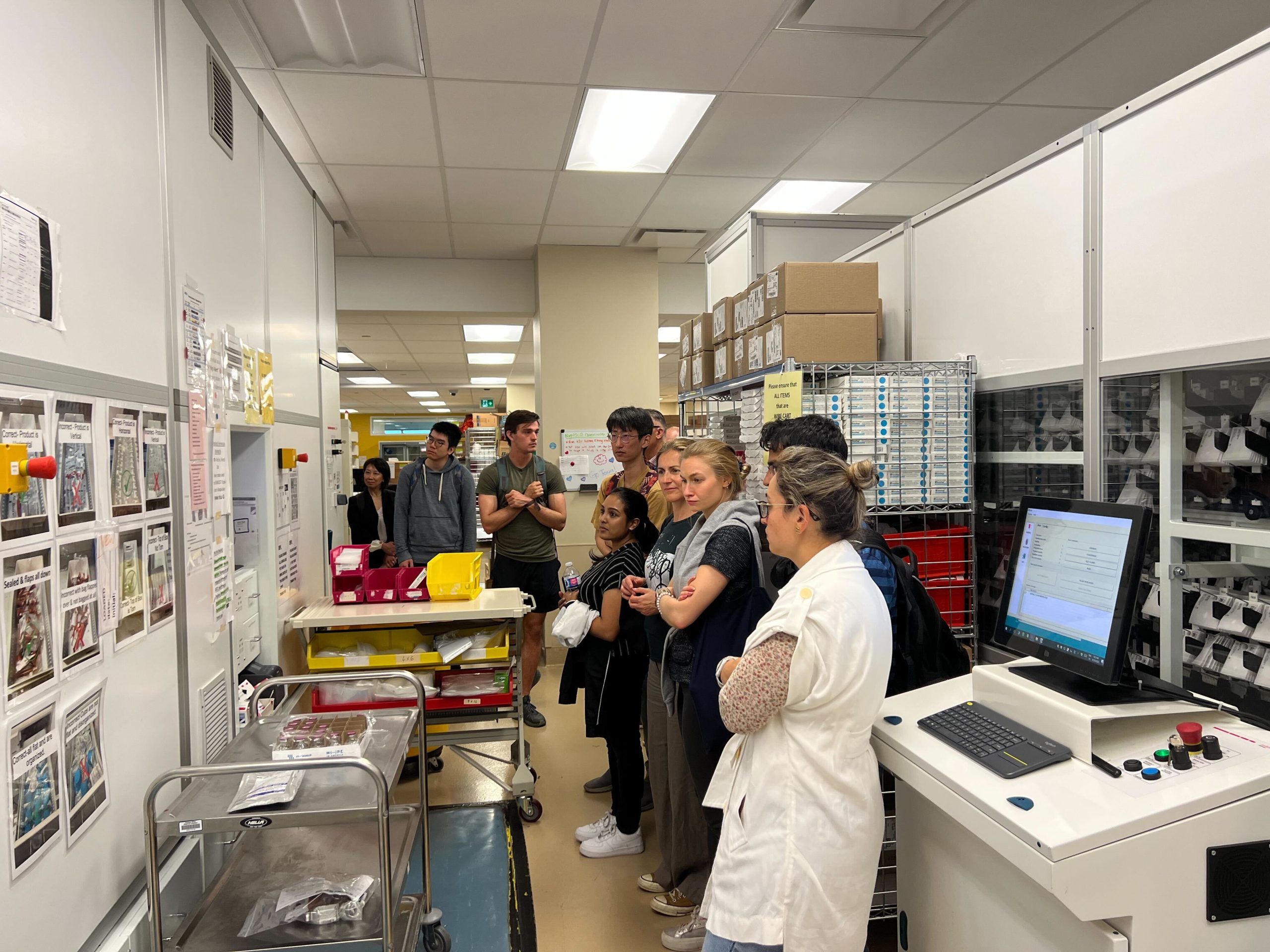
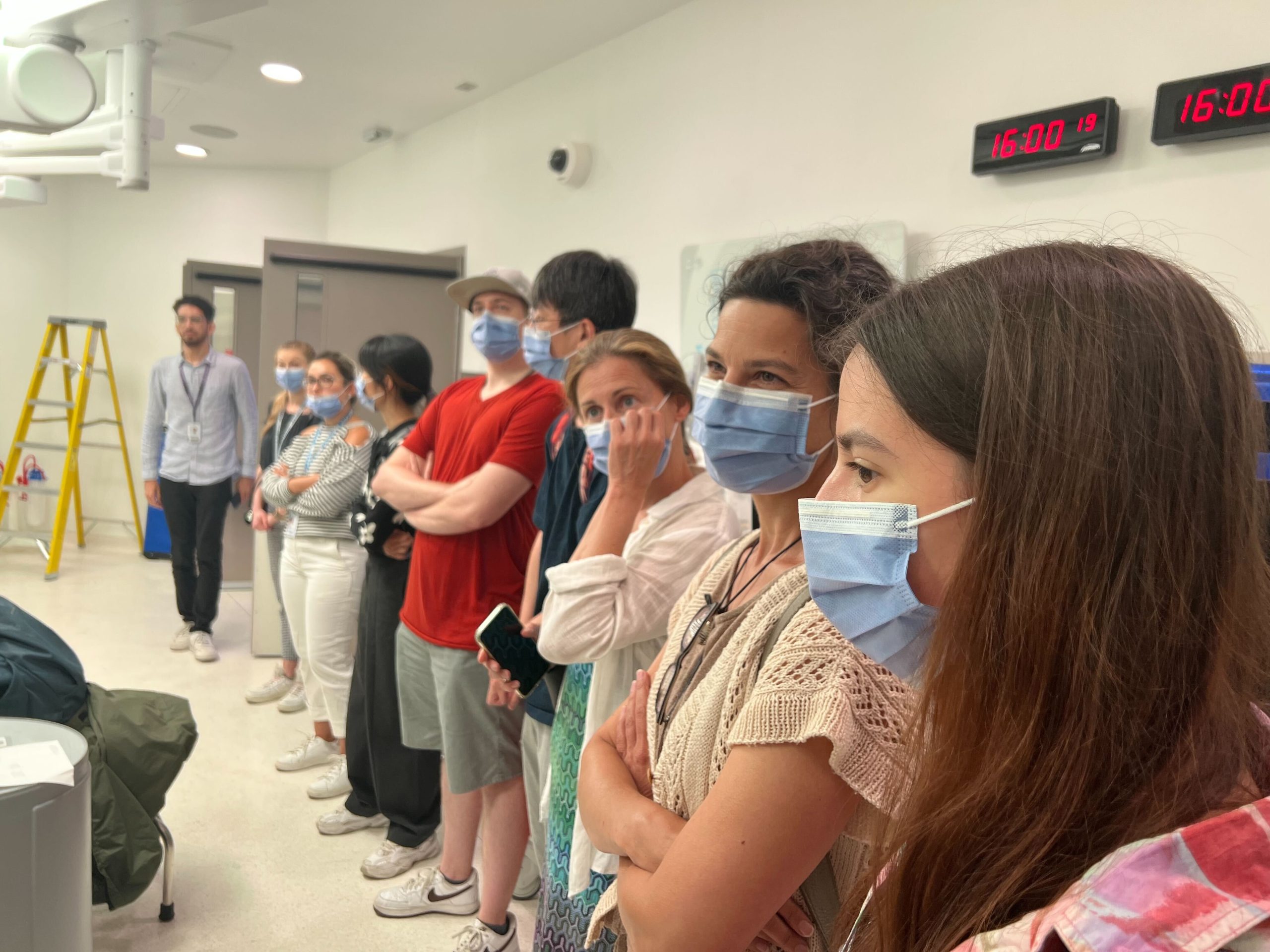 HeRo Summer School 2023: Hands-on field trips
HeRo Summer School 2023: Hands-on field trips
Working with local hospitals, rehabilitation centres, and clinics, the HeRo faculty have organized a series of field trips to experience direct applications in their field of study.
All HeRo Trainees are invited to participate and will be encouraged to submit and present their research as appropriate. Only those trainees who participate in all field trip activities will be considered as meeting the Summer School minimum requirement.
HeRo Summer School: MARSS 2022
International Conference on Manipulation, Automation and Robotics at Small Scales (MARSS ‘22) In 2022 year UofT will host MARSS in Toronto. All HeRo trainees are required to attend the full conference to fulfill their summer school requirement.
HeRo Summer School: ICRA 2021
HeRo trainees had the option to virtually attend the 2021 International Conference on Robotics and Automation (ICRA 2021) that will took place from May 30 to June 5, 2021, including workshops and training sessions.
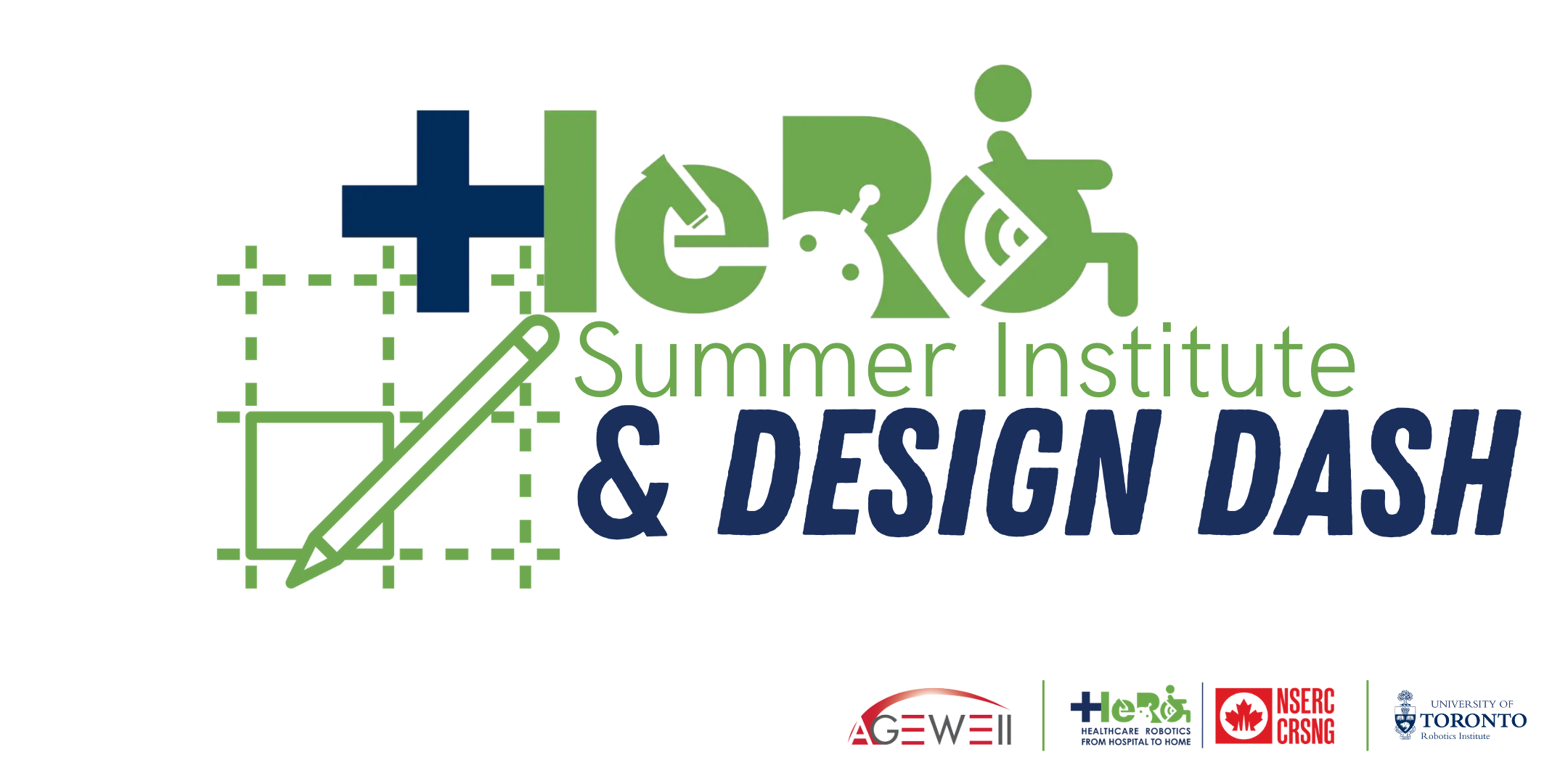
HeRo Summer Institute and Design Dash
Be at the forefront of healthcare robotics innovation!
The HeRo Summer Institute challenges emerging researchers to push the boundaries of healthcare robotics research for surgical, assistive, and rehabilitative use. Building on ideas introduced in MIE1080, trainees will work in teams and directly with stakeholders to co-create innovative technologies that will address end user needs.
A project-based, experiential learning opportunity, the HeRo Summer Institute places trainees from different disciplines together and guides them through the solution development process from problem identification to product design and will culminate in a pitch competition.
Attendees will build and demonstrate stakeholder engagement, iterative design, and interdisciplinary working skills and be introduced to key implementation challenges such as commercialization.
Note: the Summer Institute will be offered in various forms depending on the year.
Workshops
Trainees must attend our annual workshops. Workshops will touch on the three pillars of HeRo: rehabilitative, assistive and surgical. They will create conversation and showcase examples of healthcare robotics in various settings - their value, operations, and challenges - from researchers, professionals, and HeRo trainees.
2023 HeRo Summit - July 18 & 19
Happening as part of the Toronto Robotics Conference
HeRo trainees have a special session dedicated to sharing their research with conference attendees. Additionally, students have the opportunity to present posters as part of the poster session.

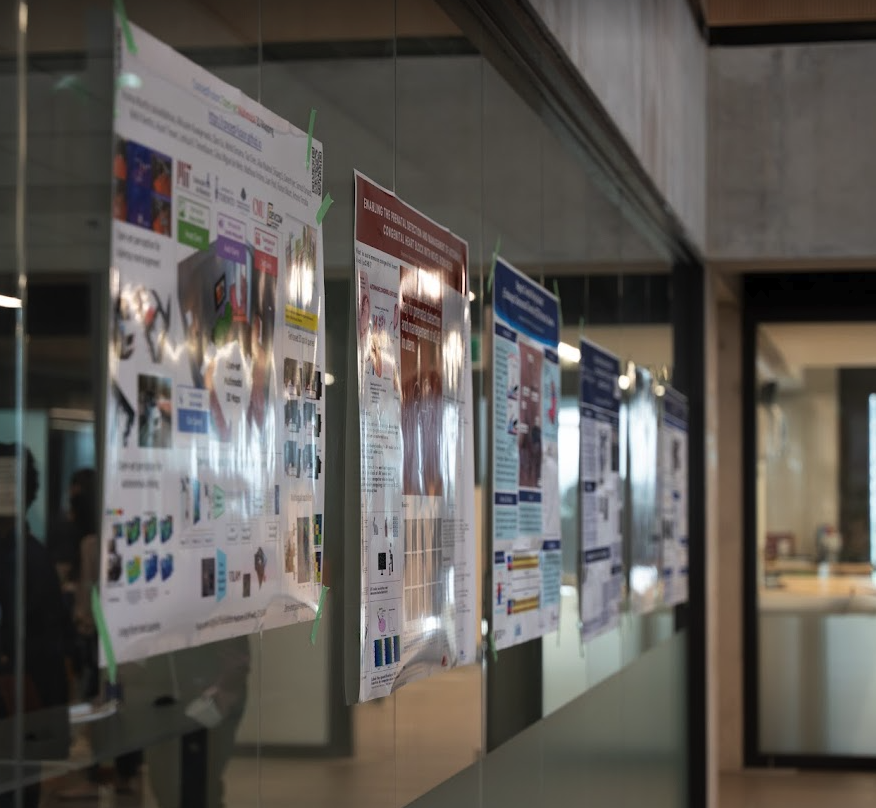
Professional Development
HeRo trainees must engage in professional development. This will be tailored to the trainee's individual needs.
HeRo trainees should discuss their professional development options with their supervisor.
Examples include:
- The Robotics Leadership program through the Robotics Institute
- MyGDP, an online professional skills development program with numerous course offerings through the School of Graduate Studies Centre for Graduate Professional Development (CGPD).
- Attending the Absolutely Interdisciplinary 2021 Conference and submitting a reflection on the topic you found most resonant. This year, Absolutely Interdisciplinary sets out to foster the interdisciplinary conversations needed to map the connections between human and AI normativity. Participants will contribute to and learn about emerging areas of research and new questions to explore.
- Entrepreneurship 101, a five-week, on-demand online course that offers mentorship from experts, and all the tools you need to launch your startup from MaRS.
- Professional skills courses offered through Mitacs (must be currently registered graduate student or post-doc at a Canadian university).
- Workshops, courses and summer training offered by Troost iLead, the home of engineering leadership research and training at UofT
Seminar Series
HeRo trainees are expected to attend HeRo Seminars.
HeRo-related seminars occur regularly as part of the Robotics Institute seminar series.
To be informed of upcoming seminars, you can:
Subscribe to the Robotics Institute event calendar on Google
and/or
Subscribe to the Robotics Institute mailing list (be sure to sign up with your UofT email to receive seminar notifications)
Past Workshops
2021 HeRo Summit: A Virtual Workshop on Healthcare Robotics
The HeRo Summit will provide a broad-based 2 day overview of the scope of Canadian healthcare robotics with panels (including researchers, end-users, and industry representatives), trainee presentations, keynote speeches on each of the three pillars, networking opportunities, and a faculty AMA.
February 8 & 19, 2021: Click for more info.
Workshop on Micro-Nanorobotics @ the International Conference on Robotics and Automation (ICRA 2020)
Almost 400 people registered for the workshop on Applications in Micro-Nano Robotics, co-organized by UofT’s Prof. Eric Diller and colleagues Fumihito Arai (Nagoya University), Aude Bolopion (CNRS), and Cédric Clévy (Université Bourgogne). This full day workshop featured both recognized research teams and highly promising start-ups, to present an overview of the application domains of micro/nano robotics, and the challenges of bringing current systems to industry.
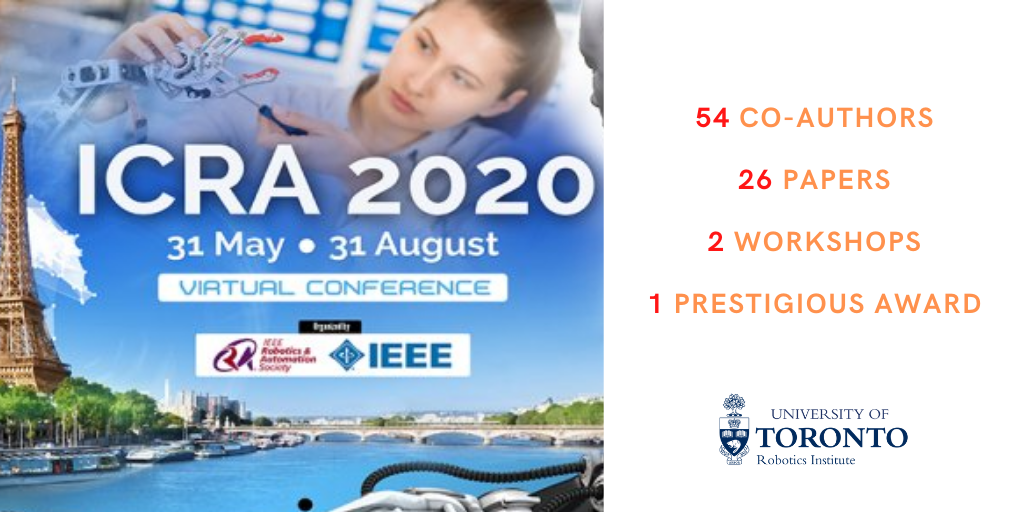
Robotics Institute Fall 2019 Student Workshop
Friday September 6, 9am-5pm
This full day event was the first large scale gathering of robotics faculty and students at UofT, and featured talks from faculty and students from across our three research pillars, including Healthcare Robotics:
- Prof. Eric Diller: "Soft microrobots for medicine"
- Prof. Adam Waspe: "MRI-guided Robotics for High Intensity Focused Ultrasound"
- Prof. Jessica Burgner-Kahrs: "Continuum & Soft Robotics"
- Prof. Lueder Kahrs: "Computer Vision for Laser Ablation Control"
- Reinhard Grassmann: "Kinematics for Continuum Robotics"
- Cameron Forbrigger: "Miniature Magnetic Tools for Neurosurgical Applications"
- Sven Lilge: "Parallel Continuum Robots"
